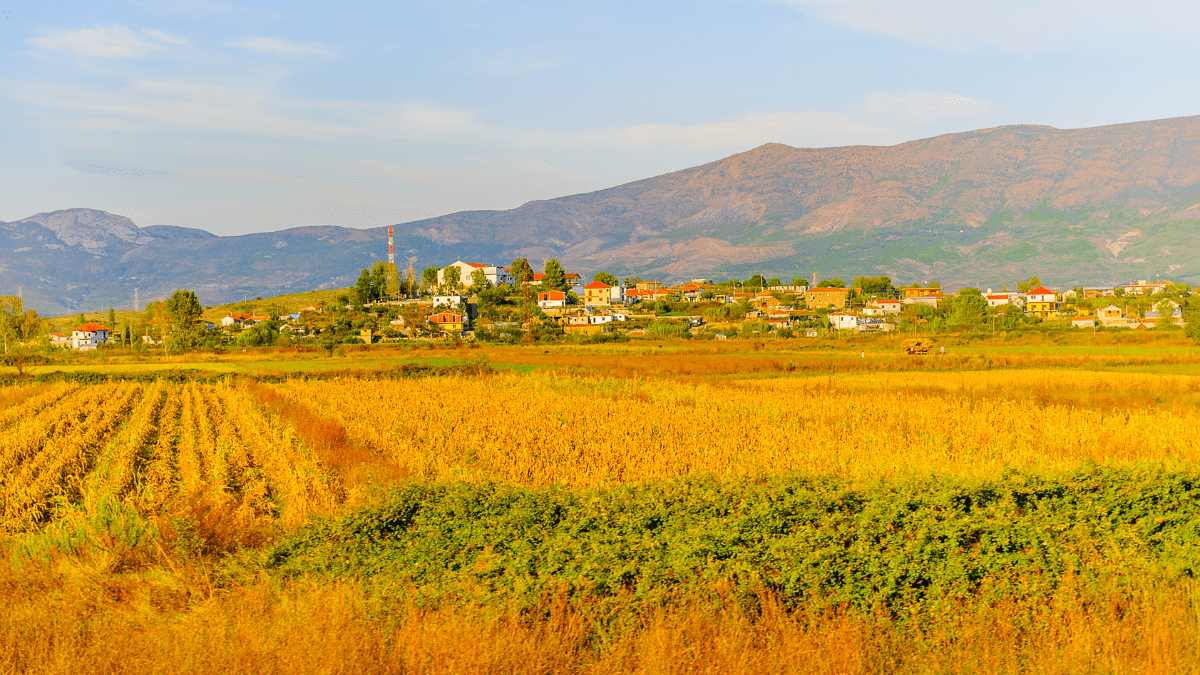Guest blog written by Lorena Pullumbi

The Leading Economic Growth course has been an absolutely inspiring intellectual journey for me. Having taken place during unprecedented times and mostly under lockdown, it was a unique opportunity to truly reflect on key principles of economic growth while using that toolset to better understand the unfolding of policy choices and drivers of economic growth for my own country (as a policy professional working for the administration, you don’t always get that chance often). The world class academic excellence was a major driving force that triggered my intellectual curiosity and led me to deepen the involvement with course material and do further research, whereas the way the on-‐line learning platform was designed made the course a delightful experience that I was looking forward to, every time I switched back from my day job.
Admittedly, coming from a background of political science and international relations, I had some initial self-‐hesitation as to what level I would be able to absorb and internalize concepts from economic theory. Those doubts were slowly overshadowed by the exiting content that I read during the week and the engagement of faculty during live session discussions that made the course look highly practical and versatile to many situations around the developing world. Because of the breadth of information and cases from around the world brought by faculty and participants, it was easier to confront ideas and challenge existing ones. The design of weekly assignments in the form of a snowball (or rather straw rolls) that relied on information obtained during the weeks and build towards a final strategy to promote economic growth were a very engaging and demanding task that helped me to stay focused and better adapt abstract ideas and principles taught during in the course, in a concrete environment and circumstances of my country.
The tools that we used throughout the course (the Atlas of Economic Complexity) and the power of visualising data from across the world (the Product Space) to understand how economies grow were incredible and absolutely practical in understanding a bigger and better picture on how to project future growth using economic complexity as the basic principle. The Atlas of Economic Complexity has turned out to be a very useful tool that I often go back to and have shared with colleagues working with the Government, when we need to discuss ideas and look into more detailed information about trade and economic projections of Albania and other countries in the world.
Thinking about growth in times of crisis is a unique opportunity to try and make sense of the different disruptions happening in our economies and societies. By starting off on that foot, I was able to gather my observations on the effects of COVID-‐19 on the growth of agriculture in Albania in the midst of the ‘fog war’ while trying to make a point about how the shock had drawn attention to pre-‐existing growth and inclusion challenges. The full immersion with the course began with the fascinating lessons on the implications of knowhow for economic growth and how the combination of knowhow (the scrabble theory) generated more complexity and growth. These ideas challenged my existing understanding of economicgrowth in agriculture. My preconceived notions about the growth of the sector pivoted around the ideas of budgetary support to productivity and I often referred to the level of exports as the indicator of progress. While an export-‐driven growth is a desirable one, I did not pay much attention to the underlying forces that led to such growth, which were not particularly and necessarily linked to state budgetary support. By iterating, looking at positive cases and examples of success, I came to realize that the backbone of this growth was actually because of the power of technology, in the meaning of productive knowhow.
The concept of productive knowhow, turned into a centre piece for my growth strategy in the agriculture sector and I moved further using the conceptual tools offered by the PDIA approach. I found PDIA and particularly the deconstruction of the economic complexity problem a very intuitive, practical and rewarding methodology to approach complex issues that I hadn’t done before. The lessons on the mobilization of ideas for growth, particularly by strategizing among different actors and layers of action in the public domain, made me think better about how to organize and lead work around complex issues. Before the course, it has been an overwhelming amount of work for me to solve agriculture-‐related policy problems with big and diverse groups of people, while working with the Ministry of Agriculture in Albania, under time pressure. That is one of the reasons why this practical diagnostic tool has been very useful and at the same time very empowering,offering me an opportunity to approach challenges in my daily work with more confidence and determination.
I was very happy to discover throughout the course that we stopped to reflect on issues of inclusion and thesense of us. I found it particularly inspiring to think about inclusion as an attribute of growth, aiming towards better involvement of low-‐productivity workers into high-‐productivity activities. This also reflected on my growth strategy, which placed at its core the subsistence farmers, while I attempted to explore how a new national investment policy will enable smaller farms and wider segments of the labor force currently in subsistence levels, to have access to better employment and reduce income inequality and insecurity among the most vulnerable parts of the society. By reflecting on different perceptions of the sense of us, I was able to question the rationale for our social actions which gave me inspiration to think about how we can use the Albanian sense of us as a way to unleash a bigger potential for development.
Impatiently, I have tried to put some of the ideas and lessons from LEG into action. As part of the policy process with the Ministry of Agriculture, it is exciting to be involved in the projection of the next strategic approach 2030 to growth in agriculture under the framework of the Reconstruction Program for Albania. One of the instrumentsthat I am particularly engaged with is looking into the problem of taxation for fuel used in agriculturemachinery and the effects to productivity it currently entails. This complex problem requires a full-‐scale PDIA exercise and I have tried to put that into action, by mobilizing ideas from a group of policy professionals from a diverse background to work on deconstructing the problem and then constructing it back again by finding possible entry points for a policy shift that will arguably offer farmers better incentives for modernization of their farm production and therefore better growth prospects.
It has been a memorable opportunity to learn from many people and experiences, while bonding with new ideas and points of view, meeting new people and walking into a journey that ultimately transformed my way of looking at aspects of development. The power of bright minds and the will to discuss ideas worth spreading,has been refreshing and energizing, to progress in attempting to make a significant change for our countries and society as a whole.
This is a blog series written by the alumni of the Leading Economic Growth Executive Education Program at the Harvard Kennedy School. Participants successfully completed this 10-week online course in July 2020. These are their learning journey stories.
To learn more about Leading Economic Growth (LEG) watch the faculty video, and visit the course website.
